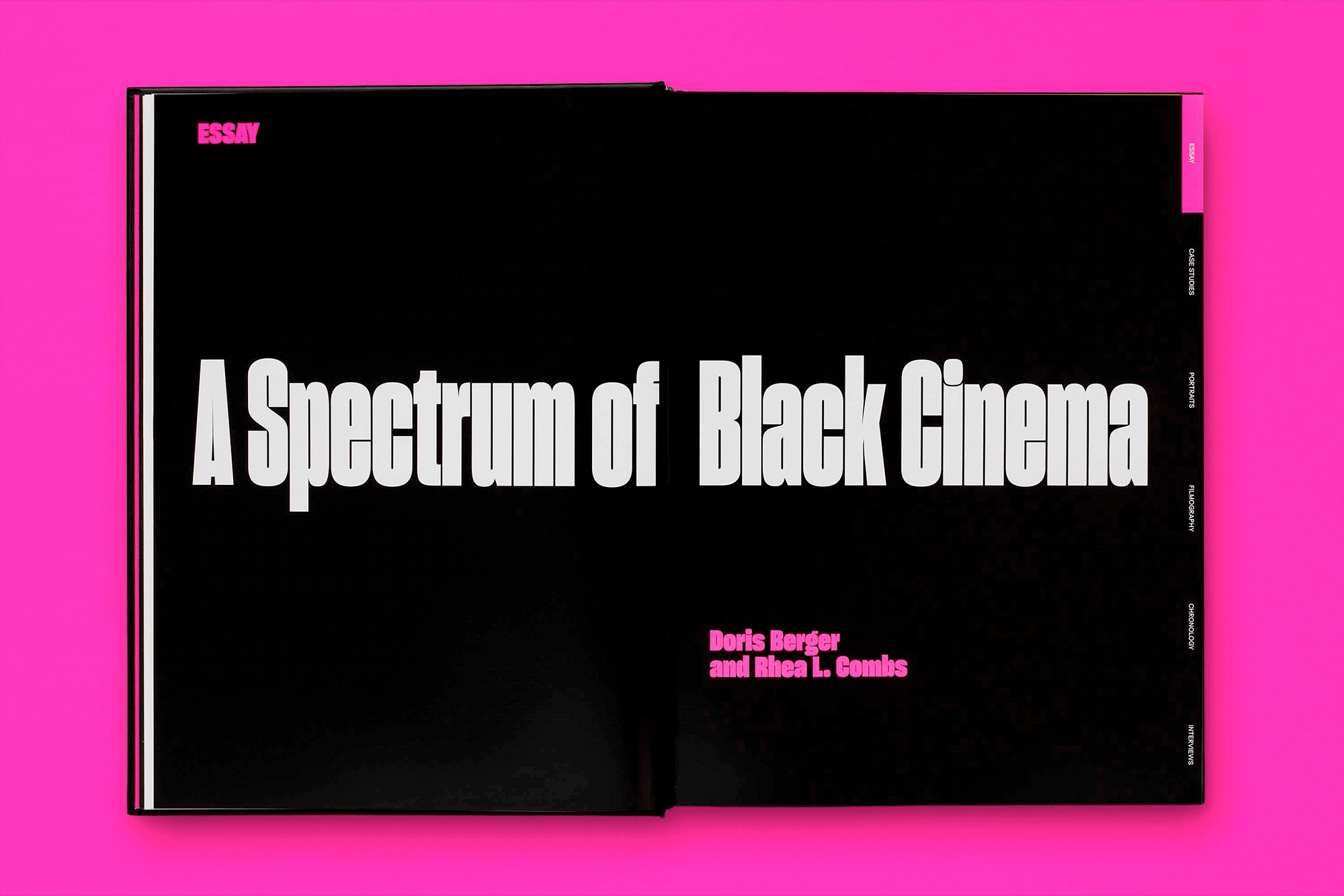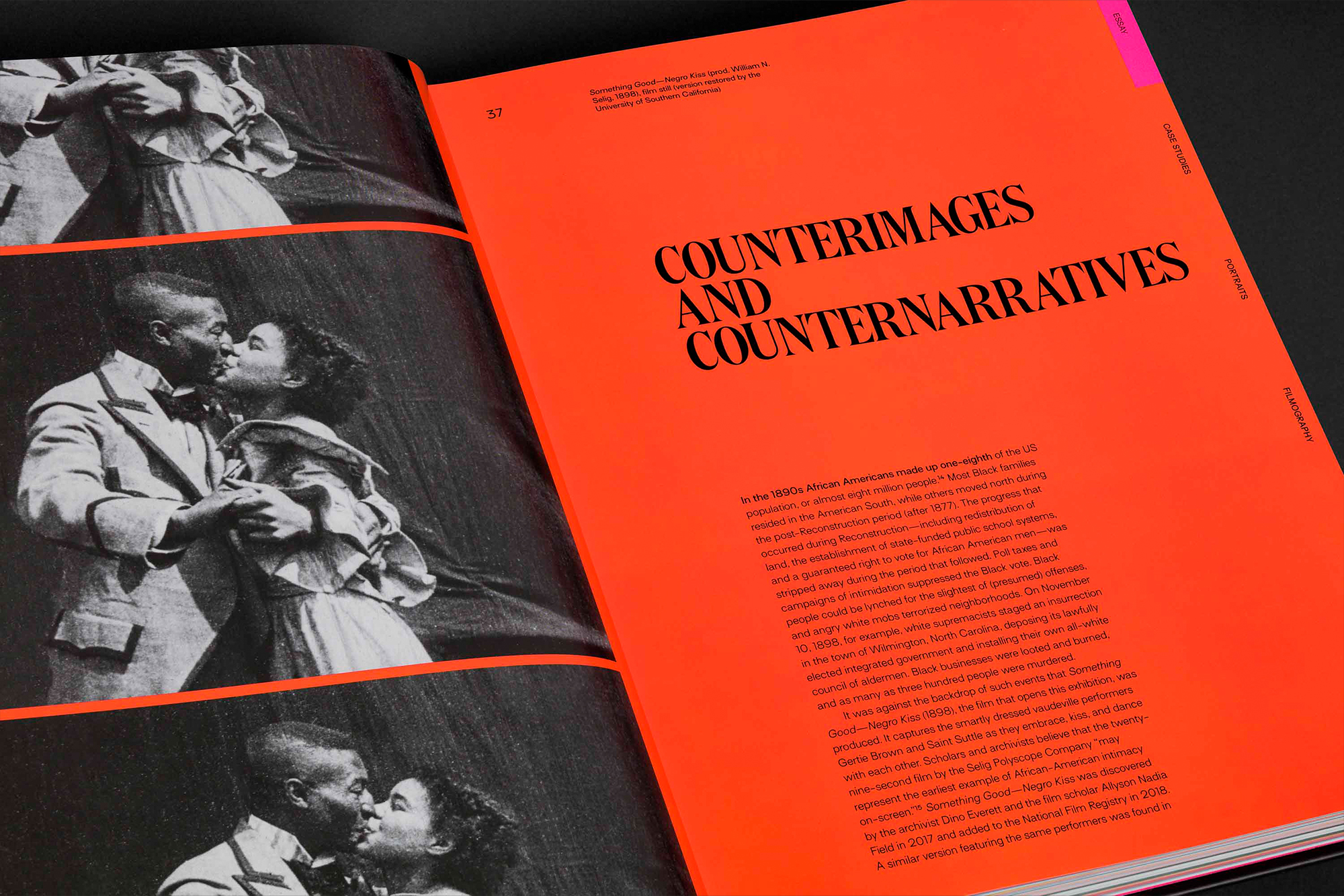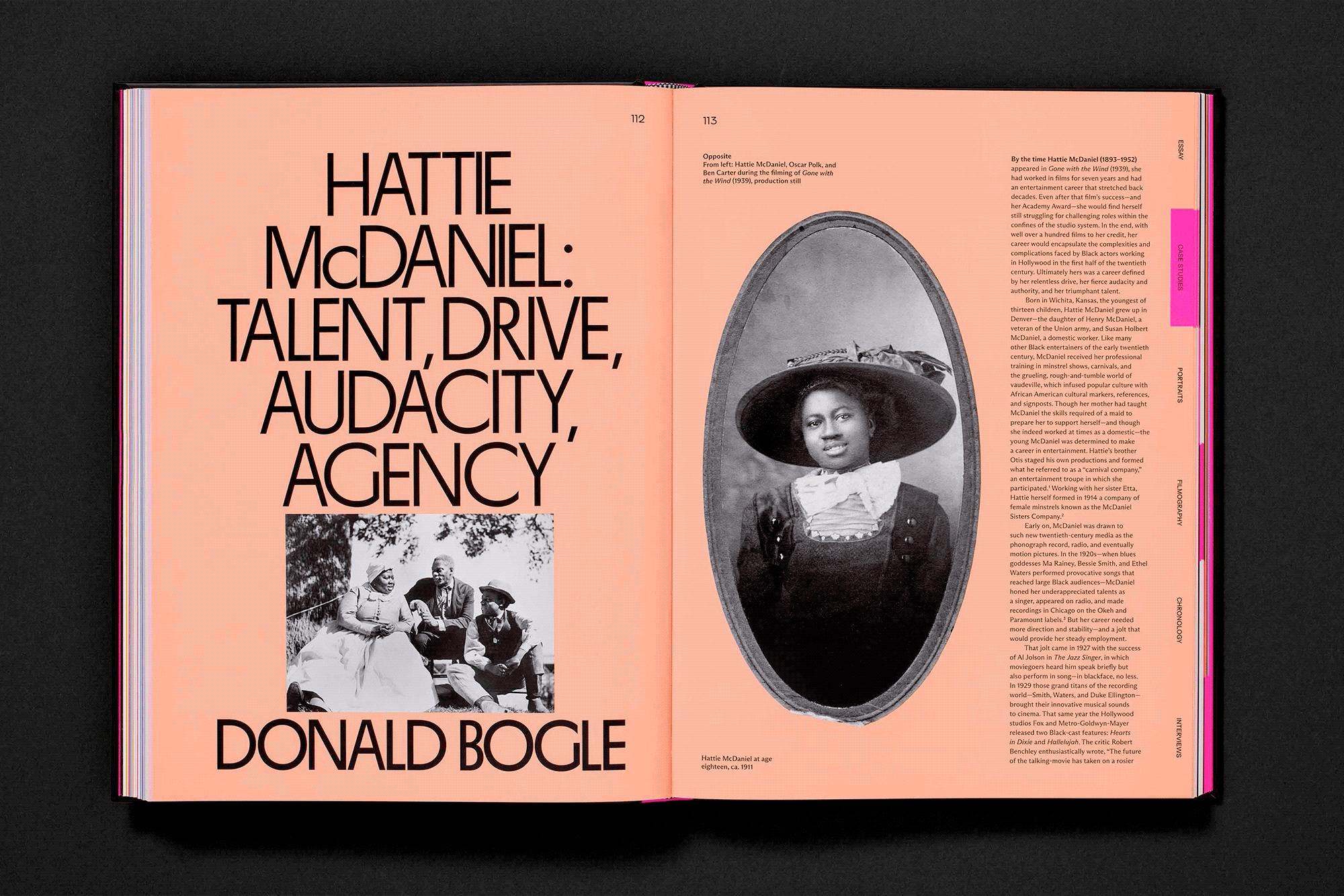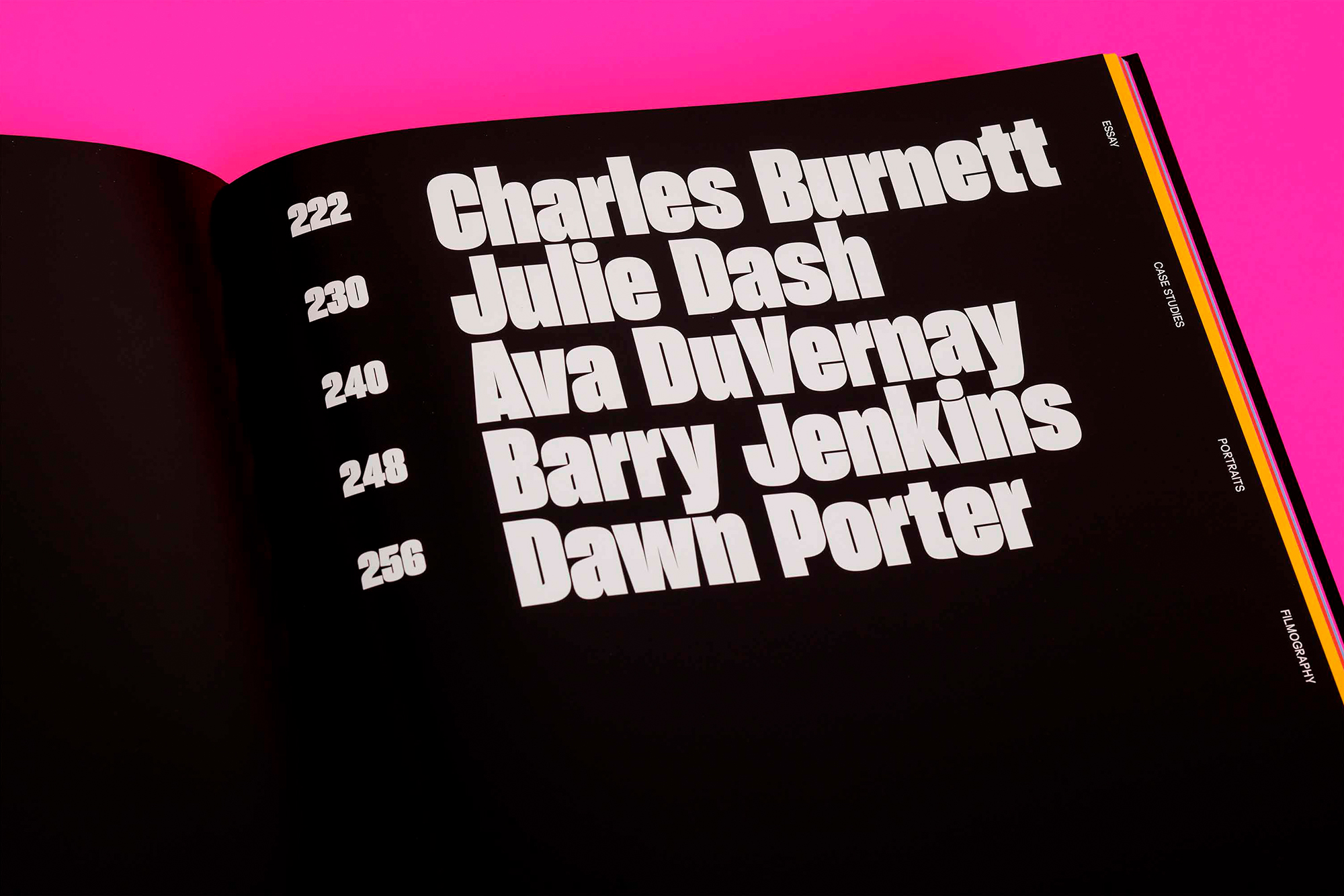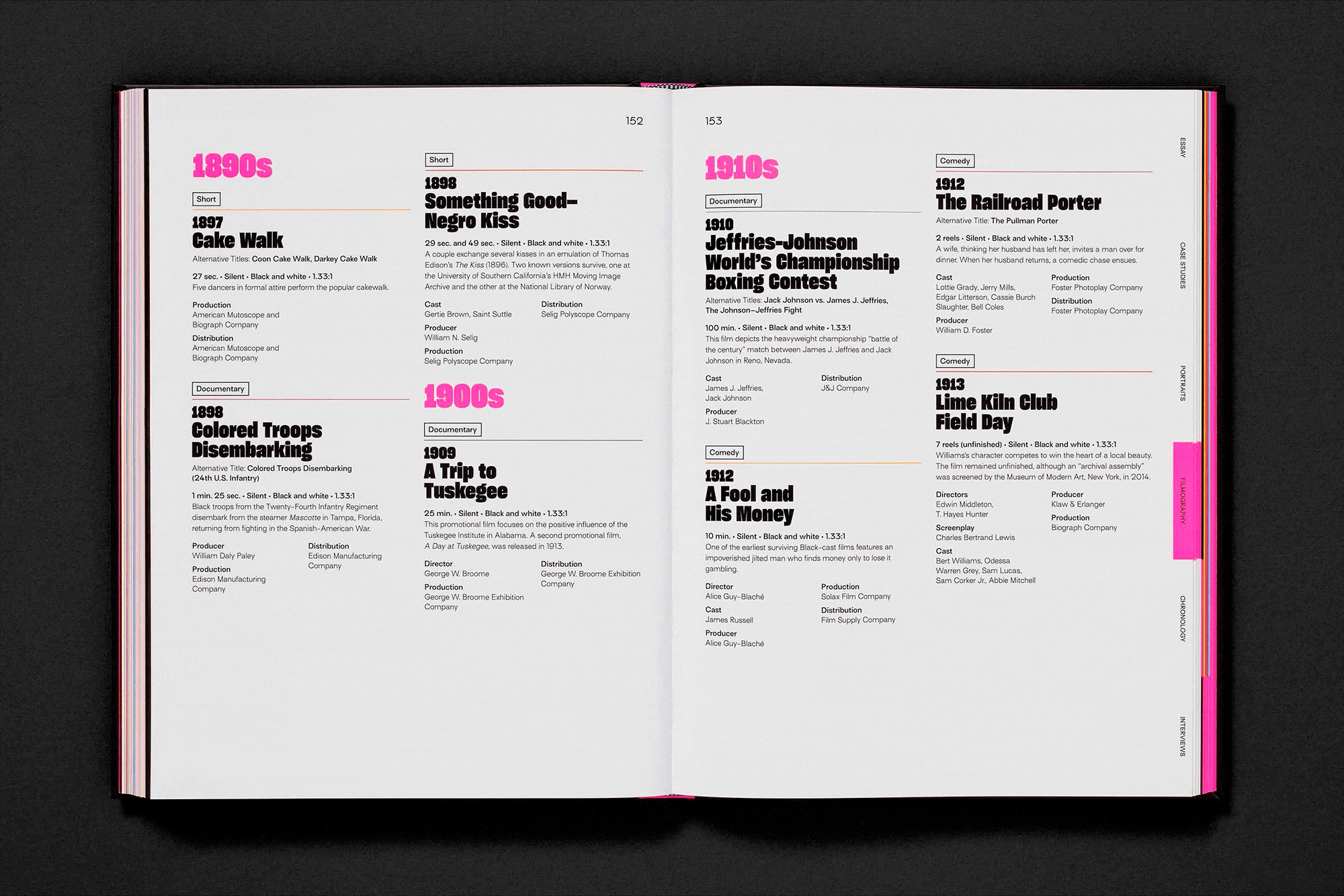Regeneration: Black Cinema 1898–1971
Designed by Jack Collins at Pentagram
Partner in Charge: Eddie Opara
Associate Partner: Brankica Harvey
Senior Designer: Jun Jung
Project Manager: Dana Reginiano
Photography: James Shanks
Categories: Printed Publication / Print / Publication
Industry: Cultural
Tags: Film / Typography / Publishing
Design of the companion book to Regeneration: Black Cinema 1898-1971, the landmark 2022 exhibition presented by the Academy Museum of Motion Pictures.
Regeneration: Black Cinema 1898-1971 explores the rich history of Black participation in American cinema from its beginnings to just beyond the civil rights movement. Co-curated by Doris Berger and Rhea L. Combs, Regeneration seeks to revive lost or forgotten films, filmmakers and performers for a contemporary audience, focusing on the foundational period that led to the explosion of mainstream and independent Black cinema that followed. The companion book aims to be an essential resource on this heritage.
The book design employs an eclectic ensemble of typography inspired by the eye-catching posters depicted within that originally drew audiences to the films via dramatic display type. The cover embodies this, repeating the title in strong upper-case letterforms (set in Sharp Grotesk Black), projecting out of the dark like a film in the theater and suggesting an evolution into a bright future. In concert with the typographic system, the designers developed a bright, modern color palette also drawing from the poster library. The vibrant color is used to offset the sepia tone of the historical materials, and visually echoes the title of the curators' introductory essay, "A Spectrum of Black Cinema."
Regeneration is helping to write history and the book is intended to serve as a valuable reference beyond the exhibition, adapting elements such as a timeline that appears on a wall in the show to an extended multi-page chronology section. The design encourages readers to flip between the pages of the book and to follow various narrative threads. A system running along the fore edge serves as a guide, indexing the essays, case studies, filmographies and interviews within into separate sections.

